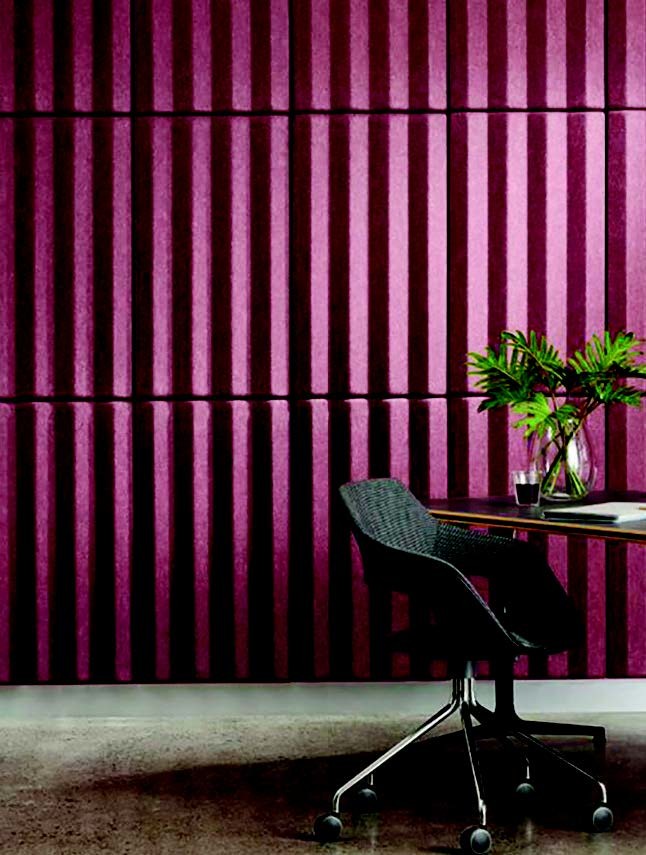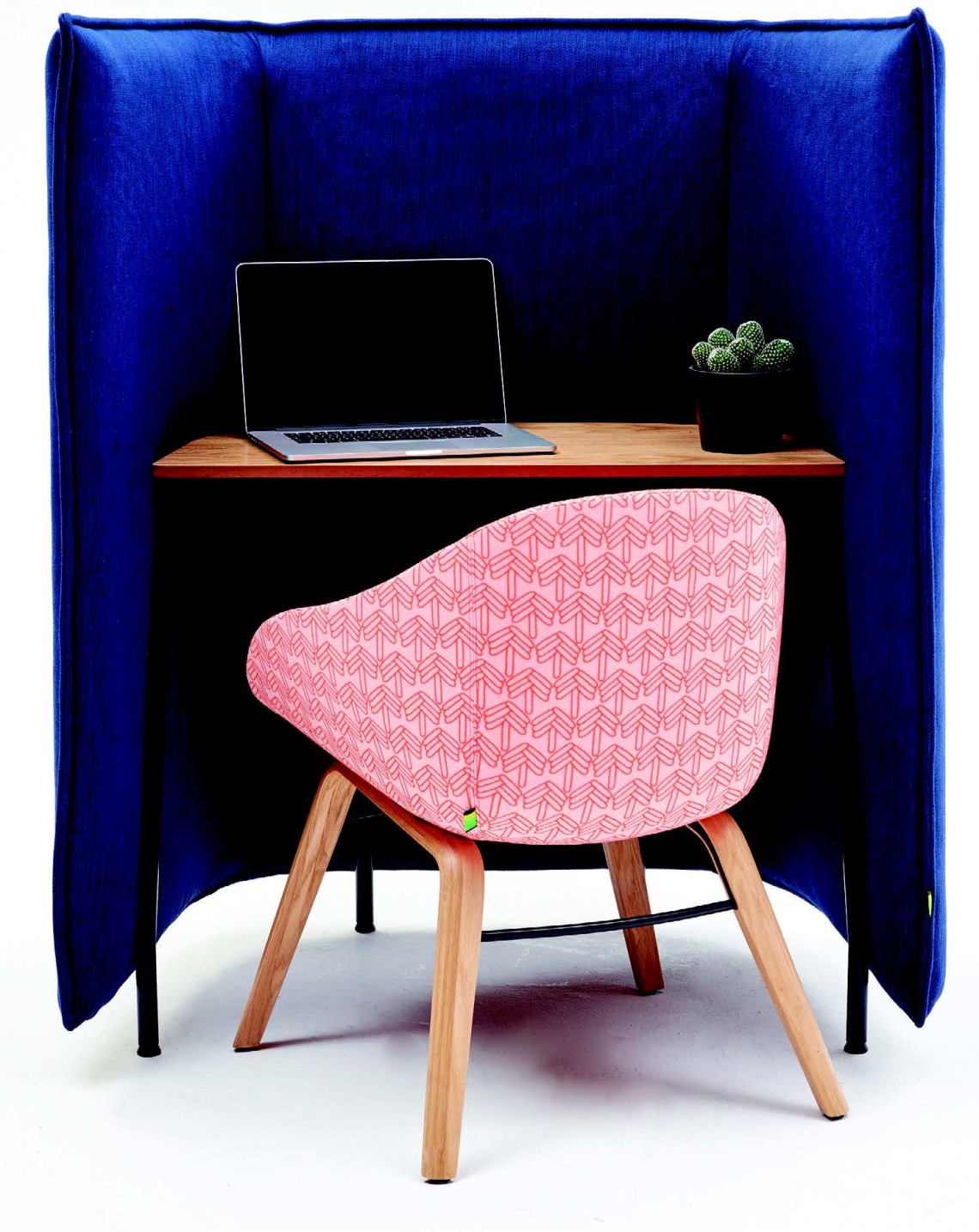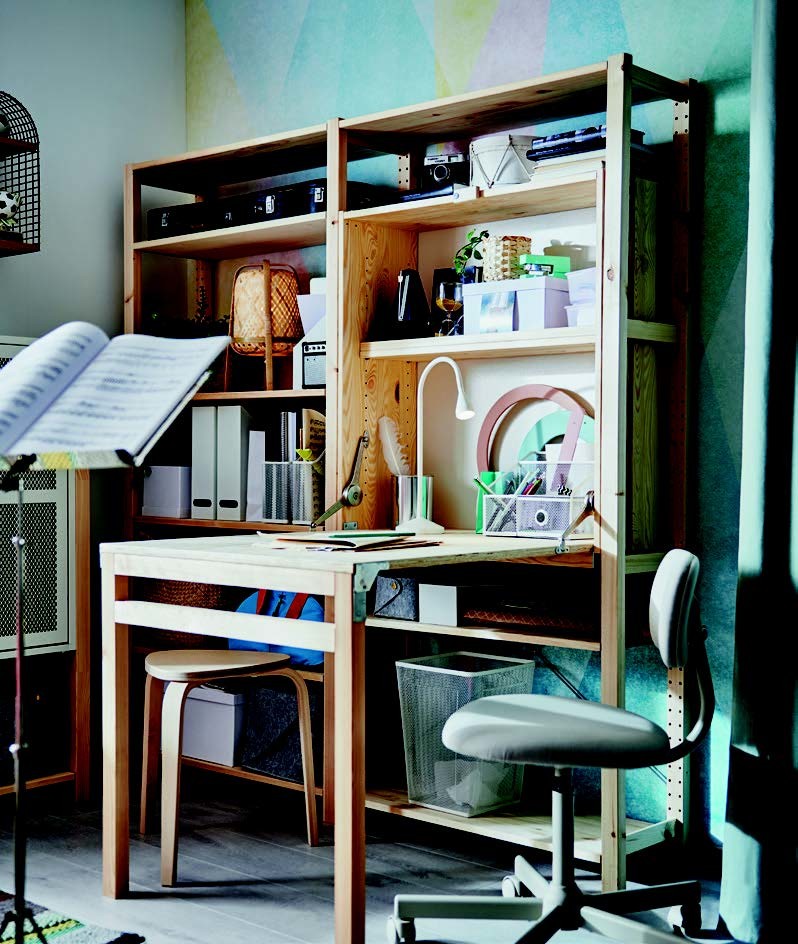Now that life and work collide at home, in our study, it is up to us to define the boundaries. Here, we look at some of the wisdom and tips from some of the world’s most prominent office furniture brands.


We’re 10 months in 2020, and most of us in Singapore have spent more than half of it working from home and navigating the new normal (are you sick of that phrase yet?) and the next normal. In the recent years before the pandemic, there had been a trend in adopting and infusing the comfort of home in the office environment, most notably through the design of the furniture, which features softer finishes, generous proportions and greater flexibility, among other things.
In the first quarter of 2020, the general consensus seemed to be that people loved working from home and wouldn’t mind doing it permanently. The tune has changed by the second quarter when we realised that our domestic environments need tweakings to be able to accommodate work. A recent survey of 1,500 corporate employees in Singapore, Australia, India, China and Japan revealed as many as 60 per cent of those aged 35 to 49 years old and two-thirds of those aged below 35 say they missed the office, as reported in The Business Times article written by Jeremy Sheldon, head of market at JLL Asia-Pacific.
One of the main reasons for this, as relayed by respondents in Singapore, was that they saw the office as a professional environment that allows for a clear distinction between personal and professional lives. At home, that distinction is elusive, but not impossible to achieve. One way is to do the reverse of the aforementioned furniture trend - borrowing some of the wisdom from office furniture brands and applying them at home.
“The home study will have to function as our offices and schools, at least for the time being. That brings with it a cognitive challenge: finding focus in chaos,” says Angela Ng, marketing manager Asia at Vitra. “Rooms and daily routines have to be rethought to maximise productivity. Is my workspace soundproof for online meetings? Does my chair facilitate ergonomic sitting for hours on end? Can I vary my working position during the day with a height-adjustable work table or by moving to a different space within the home?”

SET THE BOUND ARIES
Ideally, a workspace at home is a separate study or home office, but in reality, we are bound by constraints – space, budget and so on – to various degrees. Some may be lucky to have a dedicated study corner or room, some may be able to convert a spare room into an office while others make do from the dining table or the kitchen counter. But setting a boundary is universally important, and it is best when this boundary is tangible, to provide the acoustics and privacy conducive for working and learning.
“Segregating spaces with acoustic screens is a great way to do this,” says Kate Clarke, sales manager at commercial interior finishes company Woven Image. “They not only absorbs sounds, but also separate work from play.” These screens can be set up and packed away in a jiffy, which is handy if someone needs to clear the room for a Zoom yoga class just after a meeting. For a more permanent solution, opt for modular acoustic panels for your wall, you’d be surprised at how well some of the design fits your home.
COCOON 1750 FREESTANDING ACOUSTIC SCREEN
Comprises six panels and 10 pivot joiners made with 100 per cent PET (60 per cent of which recycled). Weighs 9.5kg and is available in four colours.

ASCENT TILES
Textured acoustic panels that add tactility to the space. Sold in a box of six, weighing approximately 5kg.

DESKTOP ACOUSTIC SCREEN
A simple three-panelled and two-joiners screen weighing just 2kg for your desktop.
GET THE ALL-IMPORTANT ERGONOMY
“A fully equipped home office may not be possible for everyone because of lack of space,” says Samantha Giam, product marketing director at Steelcase Asia Pacific.“Some of us may prioritise the most vital components, for example, a height-adjustable desk that allows change of posture throughout the day, paired with a task chair that supports these body movements. It will also be valuable that these furniture pieces are highly customisable, so that they integrate well into our living space.”
SURFACE VALUE
COCOONED DESK FOR ACOUSTIC AND PRIVACY

DESK THAT DOUBLES AS OTHER FURNITURE




HEIGHT-ADJUSTABLE DESK FOR SIT-TO-STAND

“PRIORITISE THE MOST VITAL COMPONENTS, FOR EXAMPLE, A HEIGHT-ADJUSTABLE DESK THAT ALLOWS CHANGE OF POSTURE, PAIRED WITH A TASK CHAIR THAT SUPPORTS THESE BODY MOVEMENTS.”



LAPTOP DESK FOR MAXIMUM PORTABILITY

WHEELED DESK FOR GREATER FLEXIBILITY

DESK WITH BUILT-IN STORAGE



MACHINE FOR SITTING
“The chair Is a machine for sitting,” legendary architect Le Corbusier famously said. And this machine for sitting is the most important thing to have in your study. Shauna Stewart, market manager Singapore & Malaysia at German office furniture brand Wilkhahn, agrees “A good quality ergonomic task chair is the most essential piece in a home office.” She elaborates: “For a chair to be considered ergonomic it must have four adjustable features: height, tilting mechanism, armrest and lumbar support, so the chair can be tuned to its user’s natural body movement.”
These features are what make an office chair ideal for long periods of sitting, and the reason behind their hefty price tags. “An ergonomic chair supports our posture and reduces fatigue,” says Yuki Kanamori, deputy editor-in-chief at Japanese workplace publication Worksight and research coordinator at furniture brand Kokuyo. “Adjusted at the right height and position, the armrests alone support a total of 16 per cent of the user’s body weight. “This way, they reduce strain on our elbows and wrists,” he adds. So, invest wisely.
WILKHAHN IN CHAIR
Featuring a patented technology called Trimension, which allows the seat to move as the sitter does, ensuring perfect synchronisation while keeping its centre of gravity balanced. Plus, it features a beautiful back frame.

KOKUYO ING CHAIR
The Ing Chair features 360-degree gliding mechanism that activates our body movement, helping to release the stiffness. Thanks to this technology, sitting on an Ing Chair is said to have a similar effect to sitting on a balance ball.

VITRA PHYSIX CHAIR
A lightweight, streamlined and compact task chair that offers excellent comfort for users with a small body frame.


OPTIMISE THE INT ANGIBLES
“Environment plays an important role in productivity,” says Yuki. A conducive environment is made not just with tangible design elements, but also intangible ones, most importantly, air and light. “Locate a place within your home that gives you plenty of natural light and good ventilation. Decorate with some plants if possible, to help to lighten the mood while working,” he adds, alluding to the study that biophilia (connection to nature) can help boost our wellness, which in turn will increase productivity. After sundown, make sure you have adequate artificial lighting that closely mimics natural daylight to reduce the strain in your eye from staring at your computer screen.
COELUX LONG SKY
In the case of completely enclosed or subterranean spaces, CoeLux may very well be the next best thing to natural light. It combines three elements to achieve a convincing daylight effect: an LED technology for illumination, an optical system for the blue, and a millimetre-thick nano-structure material that renders them to appear natural together. Custom size is available by request.

DYSON LIGHTCYCLE DESK LIGHT
Emitting powerful light (over 1000 lux), with glare protection and low optical flicker, this desk light surpasses the recommended illumination levels for artificial light.

VITRA LAMPE DE BUREAU
Constructed from bent sheet steel, this desk lamp by design legend Jean Prouve reflects the light rays and pleasantly illuminates the desk surface.
text ASIH JENIE























